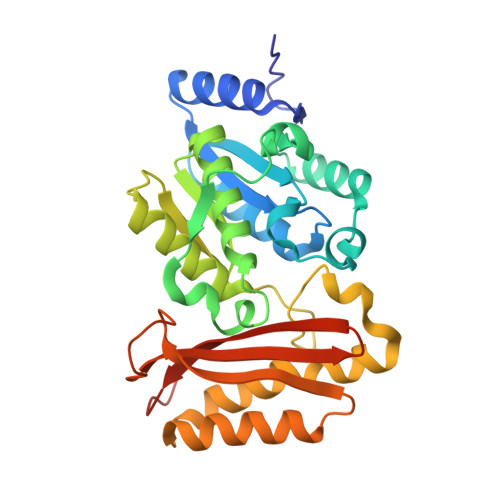Integrated biophysical approach to fragment screening and validation for fragment-based lead discovery.
Silvestre, H.L., Blundell, T.L., Abell, C., Ciulli, A.(2013) Proc Natl Acad Sci U S A 110: 12984-12989
- PubMed: 23872845
- DOI: https://doi.org/10.1073/pnas.1304045110
- Primary Citation of Related Structures:
4DDH, 4DDK, 4DDM, 4DE5, 4EF6, 4EFK, 4FZJ, 4G5F, 4G5Y - PubMed Abstract:
In fragment-based drug discovery, the weak affinities exhibited by fragments pose significant challenges for screening. Biophysical techniques are used to address this challenge, but there is no clear consensus on which cascade of methods is best suited to identify fragment hits that ultimately translate into bound X-ray structures and provide bona fide starting points for synthesis. We have benchmarked an integrated biophysical approach for fragment screening and validation against Mycobacterium tuberculosis pantothenate synthetase. A primary screen of 1,250 fragments library was performed by thermal shift, followed by secondary screen using one-dimensional NMR spectroscopy (water ligand observed gradient spectroscopy and saturation transfer difference binding experiments) and ultimate hit validation by isothermal titration calorimetry and X-ray crystallography. Our multibiophysical approach identified three distinct binding sites for fragments and laid a solid foundation for successful structure-based elaboration into potent inhibitors.
Organizational Affiliation:
Department of Biochemistry, University of Cambridge, Cambridge CB2 1GA, United Kingdom. [email protected]


















